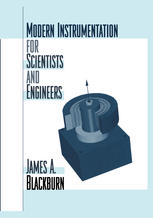

Most ebook files are in PDF format, so you can easily read them using various software such as Foxit Reader or directly on the Google Chrome browser.
Some ebook files are released by publishers in other formats such as .awz, .mobi, .epub, .fb2, etc. You may need to install specific software to read these formats on mobile/PC, such as Calibre.
Please read the tutorial at this link: https://ebookbell.com/faq
We offer FREE conversion to the popular formats you request; however, this may take some time. Therefore, right after payment, please email us, and we will try to provide the service as quickly as possible.
For some exceptional file formats or broken links (if any), please refrain from opening any disputes. Instead, email us first, and we will try to assist within a maximum of 6 hours.
EbookBell Team

0.0
0 reviewsKnowledge of instrumentation is for experimentalists a kind of fluency in the language of measurement. But it is a fluency not so commonly possessed, and without which much of the experimental process remains hidden and mysterious. The basic goal in writing this book is to provide a treatment of useful depth of the basic elements of the instrumentation "language," namely electronics, sensors, and measurement. The present epoch is arguably a golden age for instrumentation. The crucial ingredient has been the exceptional development of semiconductor fabrication technology, and this has led to the present richness in both analog and digital inte grated circuits. The former provide relatively inexpensive but high-performance electronic modules (such as the operational amplifier) which can serve as build ing blocks for more complex circuits, whereas the latter have culminated in the desktop computer, which has permeated modem life generally and revolu tionized the instrumentation world with its capacity to act as a measurement controller and data storage center. Finally, silicon micromachining is creating a host of new sensors for such quantities as acceleration and pressure.